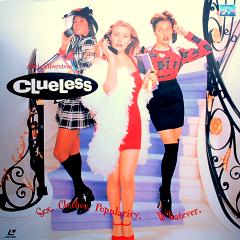 International publishers demand new intellectual property rights protection to safeguard the future of journalism.
International publishers demand new intellectual property rights protection to safeguard the future of journalism.
That’s the title of a press release distributed late last week by the European Publishers Councel (EPC), which you can find here. Pretty heavy stuff, right? They don’t ask, they demand. They’re not looking for more effective application of the current IP rights protection, they want an entirely new one. And once they’ve secured that, the future of journalism will be safeguarded (hold the applause).
The rest of the news release contains more gems, like this quote from Gavin O’Reilly, Group Chief Executive Officer, Independent News & Media, President of the World Association of Newspapers and News Publishers (WAN-IFRA) and Chairman of ACAP (Automated Content Access Protocol):
“We continue to attract ever greater audiences for our content but, unlike in the print or TV business models, we are not the ones making the money out of our content. This is unsustainable. Publishers failing will benefit no-one, least of all consumers, or indeed the search engines and other aggregators who currently make huge profits on the back of our intellectual property”.
Whether you agree with the man or not, read Danny Sullivan’s many excellent blog posts on this topic to get some perspective. My personal favorite is this one: “Google’s Love For Newspapers & How Little They Appreciate It”. There’s no better response to O’Reilly’s assertions.
So what exactly prompted the EPC to push out the press release, once again underscoring their desperation in finding a viable business model now that media usage and content generation has fragmented to a point where the world of information consumption is simply not what it used to be anymore, whether publishers like it or not? Turns out the Council has started petitioning Europe’s media commissioner Viviane Reding against unpaid use of their members’ content by aggregators and search engines.
Their intentions are neatly outlined in this Hamburg Declaration (PDF), which is rapidly garnering loads of signatures from publishers around the world, including Mathias Döpfner (Axel Springer AG, Germany), James Murdoch (News Corp, Europe and Asia), The Rt. Hon. The Viscount Rothermere, (Daily Mail and General Trust, UK), Ian Smith (Reed Elsevier, UK), Hannu Syrjanen (Sanoma, Finland), Robert Thomson (Dow Jones, Wall Street Journal, US) and many more. An excerpt from the declaration:
Universal access to websites does not necessarily mean access at no cost. We disagree with those who maintain that freedom of information is only established when everything is available at no cost. Universal access to our services should be available, but going forward we no longer wish to be forced to give away property without having granted permission.
Translation: we still want all the traffic Google is sending our way for free so we can generate enough page views to keep our advertisers happy and revenues up (barely), but we also want to be able to charge people for reading our content and punish those who spread this information to even more people. Surely, that will safeguard journalism.
Miss Reding, you can safely ignore this declaration, no matter how many dinosaurs link their name to it. And feel free to quote me on that anywhere on the Web.